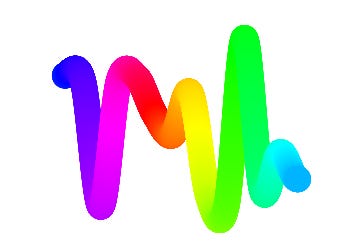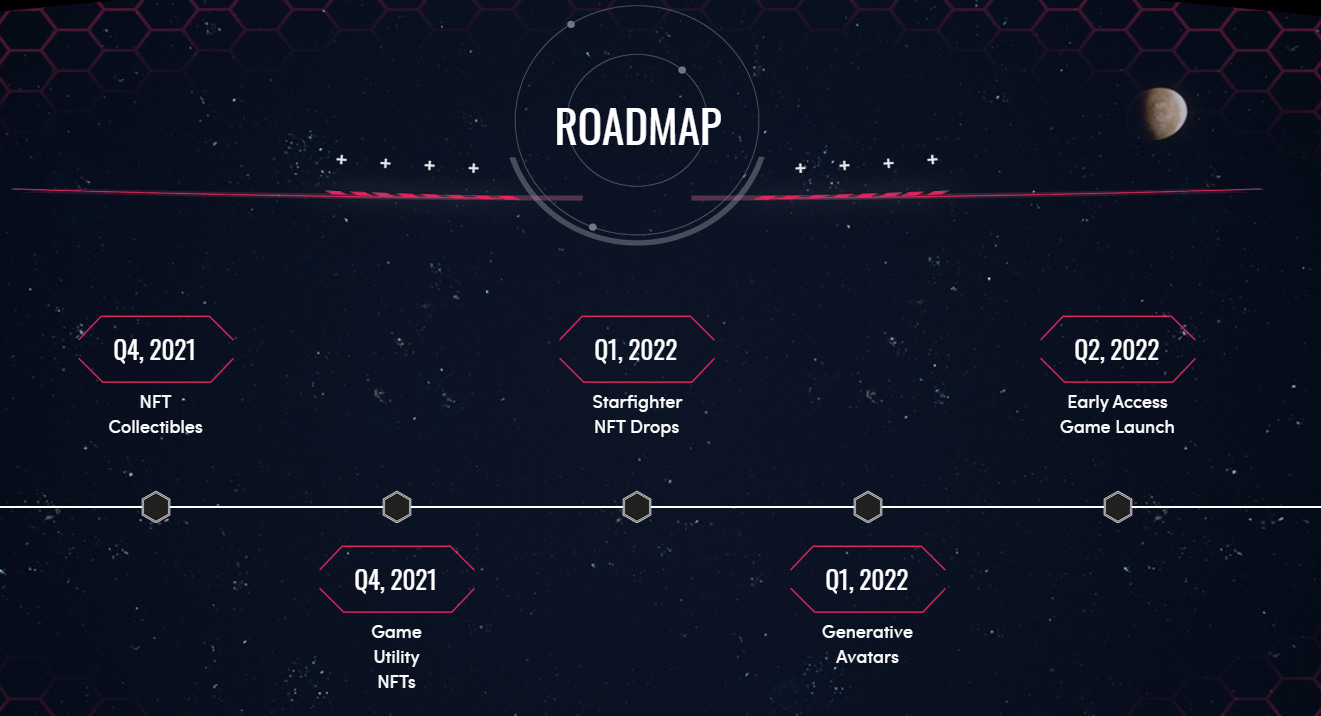Sunday Reads #137: Why would someone pay $11M for an NFT!
13 ways to think about NFTs ("It's just a JPEG" is just the first one).
Hello there!
Longer post this week (2500+ words), but I promise it’ll make you think.
We're at that stage of the crypto hype cycle where you look around and think, "What the hell is wrong with everyone?!".
And one topic on which this question has reached deafening levels is this: NFTs.
VISA (the payments company) bought this pixelated image for USD 150K. And before your jaw drops to the floor, let me tell you one more thing. They got it dirt cheap compared to other recent purchases (highest being USD 11.5M for Cryptopunk #7523).
What's up with that?? I mean... you know...
1️⃣ Aren't NFTs just JPEGs?? 🙄
Yes, at the trivial level, NFTs are jpegs. JPEGs that you can right-click and save.
JPEGs of bored apes. JPEGs of pixelated punks.
At times, they're just a squiggle.
Seriously, what's going on! 🤯
Why are people paying so much for images? Am I missing something?
Well, yes. NFTs are more than just JPEGs.
But before we get into the 12 other ways to think about NFTs, let's first understand what an NFT actually is.
First, what exactly is an NFT?
From NFTs 101,
NFT stands for non-fungible token.
Non-fungible means the token is one of a kind. They represent the digital rights to assets such as audio, video, photos, and more.
Let’s say you buy an NFT for a JPEG on Opensea, the largest NFT marketplace. You aren’t really buying the JPEG; you are buying the token, which may include the rights to the artwork or the information inside it. You receive a certificate of ownership that can be verified publicly on the blockchain.
Many tokens are fungible. One dollar is the same as any other dollar. A bitcoin is the same as any other bitcoin. An NFT, on the other hand, is non-fungible.
It's non-fungible proof that you own something.
With this in mind, we can think about NFTs a little (or a lot) differently.
2️⃣ An NFT is art.
Because an NFT is non-fungible, it is like art.
There is only one Mona Lisa. And there's only one Bored Ape #122.
This helps answer the first basic question in our minds: "What's the value of this JPEG? Why would I pay for it, when I can just right-click, save, and use it?"
The trite answer to that question is:
"Yes indeed. I can download a high resolution image of the Mona Lisa and make it my desktop wallpaper. But that doesn't stop the Louvre from guarding it, does it?"
But off-the-cuff remarks aside, an NFT has value for the same reason the Mona Lisa, or Van Gogh's The Scream do:
The buyer sees the art as an investment, whose value could go up or down in the marketplace.
Part of this value comes from one fundamental quality of NFTs...
3️⃣ NFTs create proven scarcity.
An NFT is a commitment made by a computer, that this is the only copy of it that'll ever exist.
When the Bored Ape Yacht Club released 10,000 NFTs in their collection, that's all there'll ever be.
But the value of a Bored Ape is not just its scarcity. It's also because you can prove you own it.
Which brings us to the next point.
4️⃣ An NFT is a property right.
An NFT is a cryptographically certified proof that you own something you say you do.
As the HBR says in How NFTs Create Value,
NFTs have fundamentally changed the market for digital assets.
Historically there was no way to separate the “owner” of a digital artwork from someone who just saved a copy to their desktop.
Markets can’t operate without clear property rights: Before someone can buy a good, it has to be clear who has the right to sell it, and once someone does buy, you need to be able to transfer ownership from the seller to the buyer.
NFTs solve this problem by giving parties something they can agree represents ownership.
In doing so, they make it possible to build markets around new types of transactions — buying and selling products that could never be sold before, or enabling transactions to happen in innovative ways that are more efficient and valuable.
There's a pattern across #2-#4. Did you catch it?
It's this: NFTs are a signal of exclusivity. 🌟
But it doesn’t stop here.
Because here’s the thing - there's a lot, lot more to NFTs than just exclusivity and flexing.
When you can prove your property right irrevocably and instantaneously, it's possible to link that to other things.
For instance:
5️⃣ An NFT is an access pass to a community.
An NFT can give you access to private communities.
Many NFT projects have private Discord servers (Discord is like Slack, but for nerds). You need to prove that you own an NFT from that project, to be able to participate.
At NFT NYC (which took place a few days ago), a few projects held closed-door events. You could only enter if you owned a particular NFT in your crypto wallet.
As Chaser Chapman said on twitter:

Yes, a DAO is the next step.
6️⃣ An NFT is a way to align incentives in a community.
A DAO (or Decentralized Autonomous Organization) is a community of people who've come together with a combined goal.
And an NFT is a great way to align incentives for all these people who come together.
Once you pay for an NFT, it's in your interest that the community achieves its goals. After all, that's how the value of your NFT goes up.
For a real-life example of how this works, check out ecodao. It's an NFT-enabled community to protect the environment.
In summary:
An NFT is not a JPEG, and it's not just art. It's also an exclusive access pass to a digital community, with aligned incentives to achieve a common goal.
Hmm. It's natural to ask the next question, "Where will this digital community exist? Just on Discord? Or..."
7️⃣ An NFT is your identity in the Metaverse.
Or more specifically, it's how you build your identity in the Metaverse. (Also, we call it Hyperverse now, after Uncle Zuck stole the name and made it uncool).
Let's say the future is Ready Player One. There's a Hyperverse (or Oasis if you will) which has a full, thriving virtual economy. You do certain tasks, and get paid for them in virtual currency (which you can then spend).
How would you furnish proof that you completed your tasks? It's not as straightforward in a digital world.
You guessed it - NFTs are the answer. Non-fungible tokens that prove that a task was completed, and that you were the one that did it.
There's more to NFTs and the Hyperverse. A lot of the most popular NFT projects have plans to build a presence in the Hyperverse.
Maybe the Bored Ape Yacht Club will be a place your avatar can visit!
Now, I know what you're thinking. This is getting a little out there, isn't it? Yes, the Hyperverse will be stranger than you think.
But no matter. Let's pull back, and think about NFTs in a completely different way.
8️⃣ NFTs are "thin IP".
What do I mean by "thin IP"?
Mario Gabriele explains it best, in NFTs that Think,
We can better understand by contrasting this new wave with traditional properties.
Last month, Daniel Craig made his final appearance as James Bond in No Time to Die. It represented the character’s 27th film and is expected to contribute handsomely to the $7 billion grossed by the franchise to date. It lags behind only Star Wars and Marvel from a global box office perspective, which is to say that the character of James Bond is extremely valuable IP. He has proven dozens of times that he is magnetic to consumers and their wallets.
But what does that IP actually look like? What is the defensible, protectable essence of Bond?
It’s the name, of course, but also a rich lore, a story, that carries with it his traits, personality, likes and dislikes, flaws and virtues. Bond is a character with an interior life, even if it can be a coldly pragmatic one.
When you buy CryptoPunk #7560 you know nothing of their character, personality, inner life. There is no lore, or story attached to them. They reflect IP, but only in their superficial features — their complexion, hairstyle, and accessories
Someone will have to fill this narrative vacuum - either the creators themselves (unlikely because they don't have the skill), or traditional storytelling experts. Yes, Hollywood.
Traditional talent agencies recognize their potential. The organization behind CryptoPunks signed a representation deal with United Talent Agency while Bored Ape's creators inked a deal with Madonna's agent, Guy Oseary. Niche crypto artwork is heading for the mainstream.
Put another way (I saw this on twitter): Which brand is worth more? Mickey Mouse or Mona Lisa?
An NFT is like a Mickey Mouse in the making.
Games are ripe for this kind of IP build-out.
For instance, Phantom Galaxies is a project that has just released NFTs.
And here's their roadmap.
Selling the NFTs is the first step. The next step is imbuing them with value.
Because you can add value to NFTs over time, you can also think of them as:
9️⃣ An NFT is an Income Share Agreement (ISA).
When you buy an NFT, sometimes it's just a flex.
But at other times, you're saying, "I believe that this piece of art will be worth more in the future".
In essence, it's an Income Share Agreement.
As the artist does well, or as the IP develops, this token that you own will have greater value.
It's like owning a first edition of Shakespeare's plays, or the first painting of tomorrow's Picasso.
Actually, it's even better than that.
🔟 An NFT is a way for artists to share in the value of their creations.
One of the problems with Picasso's first painting is that he made almost no money from it.
He wasn't famous then - why would anyone pay much for it?
But of course, that first buyer laughed all the way to the bank, once Picasso became famous.
We can do better by today's artists.
Because an NFT is a token on the blockchain, we can structure NFTs such that the original artist gets a royalty each time it's sold.
So, you continue to benefit as your creation gains in value.
And btw, artists are not the only folks who'll benefit from NFTs.
1️⃣1️⃣ An NFT is a way to monetize your blog / audience.
NFTs change the game for ALL creators. They make it much easier to monetize.
You can sell directly to a global community, instead of via intermediaries. Mint NFTs, and sell them to your readers.
But wait a second. Isn't this just the same as going direct via your website?
Yes it is, but only at the first level.
Because it's on the blockchain, you can do cool things with smart contracts.
For example, Tom Bilyeu is giving readers a lot of benefits via NFTs.
Different levels of access to his live and virtual events
Ownership to his content
Insider access to partnership deals
Discounts on training and merchandise
Gary Vaynerchuk has created VeeFriends, NFTs that give you a bunch of benefits:
Three year ticket to VeeCon
Access to Gary himself
VIP parties
More to be announced soon
And this is just scratching the surface.
A podcast creator can sell an NFT that gives exclusive access to shows.
Shaan Puri created an NFT that gives the holder 5 min on his popular podcast, My First Million.
The person who bought the NFT has a few choices:
They can use the NFT now.
They can sell the NFT to a big company that wants to advertise.
Or they can do either of these 5 years from now. When the value of advertising on MFM (and therefore the value of the NFT) is much higher!
This is a great thread about monetizing content with NFTs 👇


1️⃣2️⃣ NFTs give you incredible control on how you give your audience value.
Let’s go back to Tom Bilyeu's example. By having different tiers, he's able to give differential value to fans vs. super-fans.
For instance, these are the benefits that members of the "Heroic Tier" get.
You can be far more granular than this, if you want.
You can also say, "Anyone who has held my NFT for more than 365 days as of Nov 14 2021, is a true believer. All of you will get VIP access to my content".
And you can do this seamlessly.
And there's a flipside too. Your buyers can also cancel painlessly. There's no buyer's remorse.
Remember the time you bought a HBO subscription just to watch the last season of Game of Thrones? Wasn't it a huge pain to cancel?
Or those online course, which you bought but didn’t like much?
With NFTs, you can sell it once you're done with it. Sell your subscription in the open market, to someone who values it more.
1️⃣3️⃣ NFTs create real "proof of work".
This is the last one, and it's a little further out.
"Proof of work" has a standard meaning in the crypto world. It's the mechanism by which many blockchains work (including Bitcoin).
I'm using the term in a different way.
I mean it in the traditional non-blockchain sense: Proof that you actually did what you say you did.
Let's say you've applied for a job.
The recruiter could evaluate you the usual way.
They could look at your CV and make a judgment call on what is truth and what is exaggeration.
And they may call you for an interview, and decide 👍 or 👎 based on the verbal rapport you build.
This system could be a lot better!
If there was a clear, legible, and 100% truthful proof of your capabilities, it would be MUCH simpler.
Tomorrow, via NFTs, you can get on-chain credentials to prove that you did what you say you did.
When you apply for a job, the search algorithm would automatically scan the blockchain for your on-chain experience and credentials.
And via smart contracts, you'll get hired within 60 seconds if you fit the bill!
Now before you start wondering what I'm smoking, let me say this:
This will not happen immediately, for all jobs.
Initially, this will be only for fields where ratings of skill are highly legible. Programmers, not salesmen.
Rabbithole.gg is already enabling this for blockchain related skills.
1729.com is enabling this kind of proof of work for research.
This thread is a good illustration of how NFTs will change the hiring process.

There you have it!
13 ways to think about NFTs. The current overblown hype aside, it truly is a generational technology.
The first step is JPEGs that you own.
The next is digital communities that you shape.
The third is a world where you can finally flourish as a creator, without intermediaries.
[PS. To all those wondering, yes, I did buy an NFT].
[PPS. Thanks to Saurav Bhatia and Nishit Pathak (my gurus in the world of NFTs) for reviewing a draft of this].
Further reading:
If you want to read something else I’ve written about crypto, check out: A new blockchain based Internet is coming. And it's going to be amazing.
And other reads on NFTs:
Chris Dixon's thread on "What's next in Web3"
Hope you enjoyed reading today’s edition of Sunday Reads!
Would love if you could also share it on Twitter so more people can see it. Thanks a lot!
PS. Do subscribe if you haven’t 😊.









